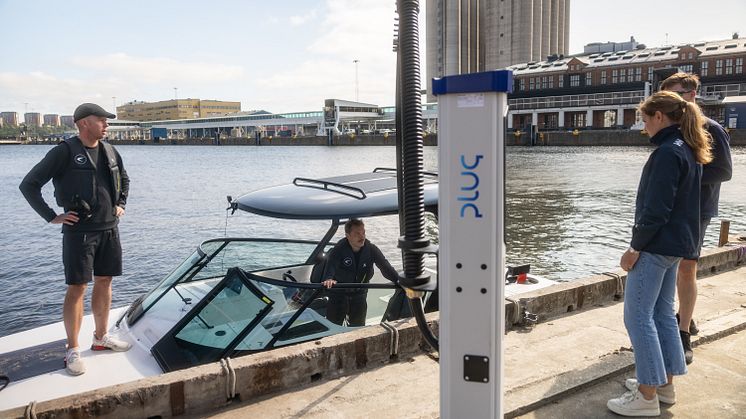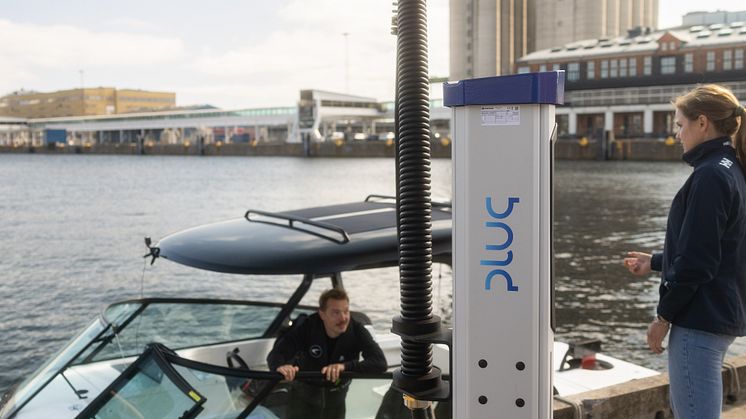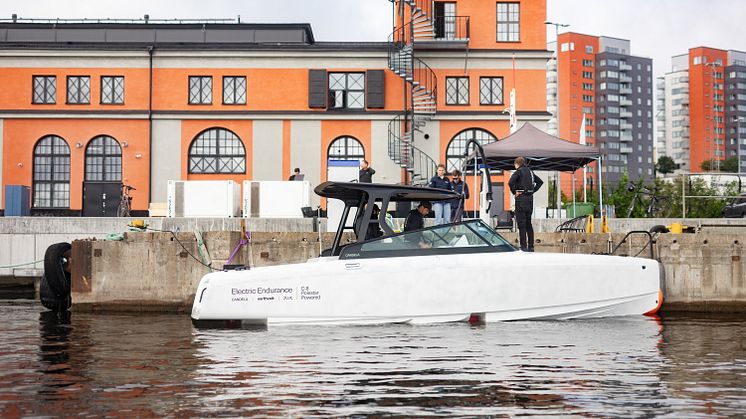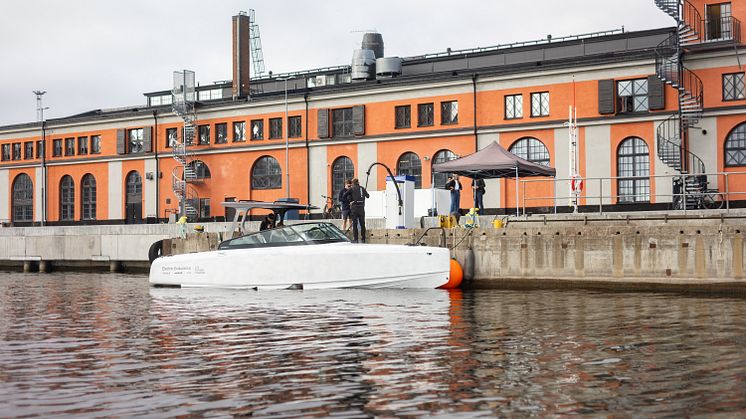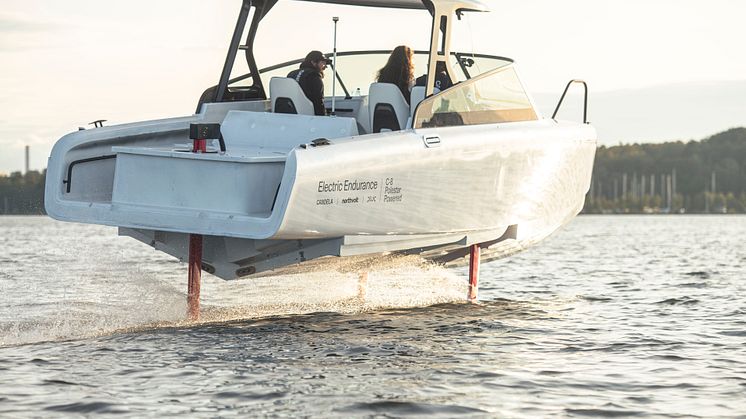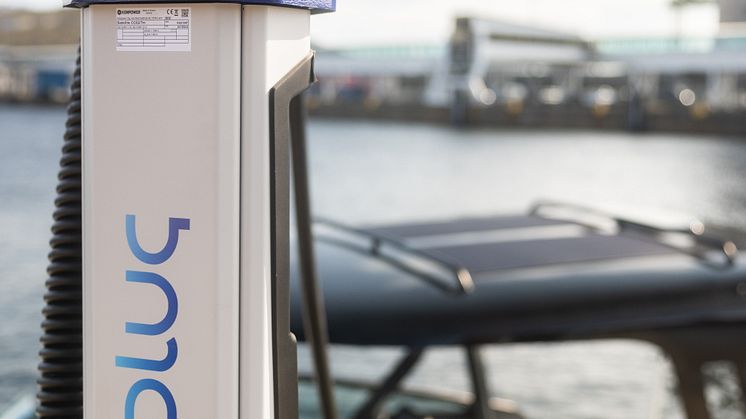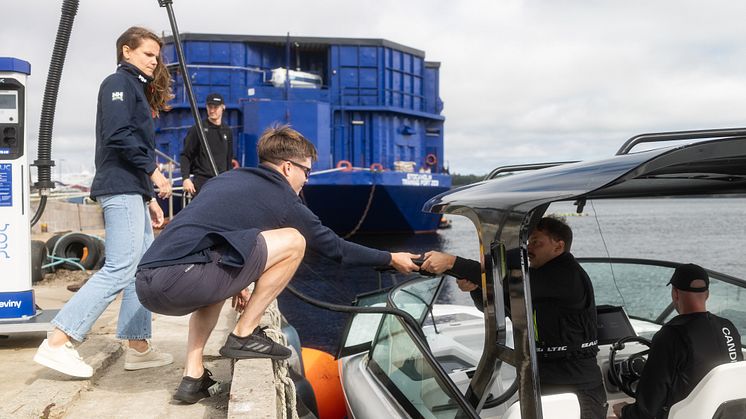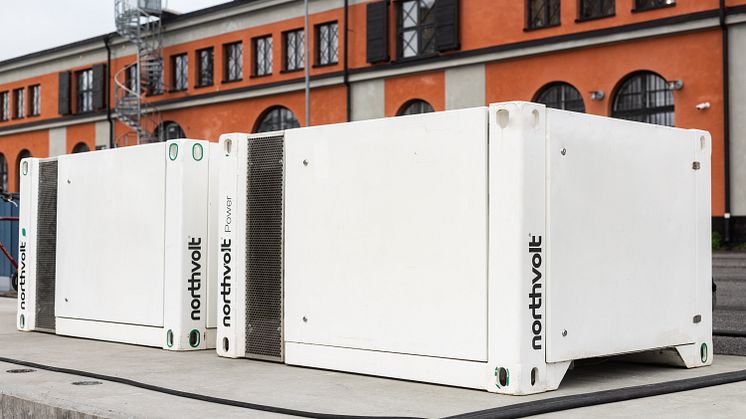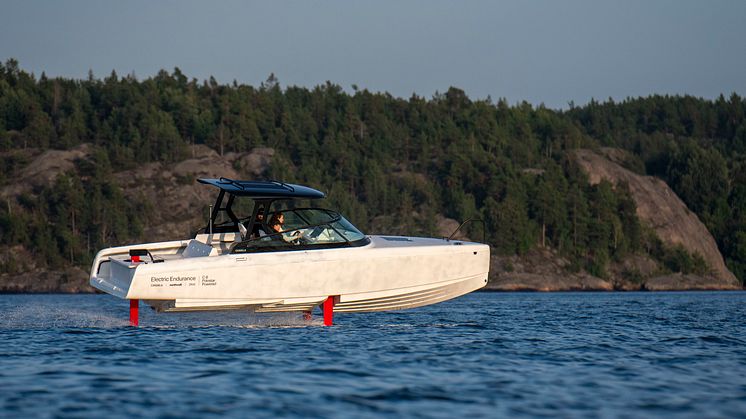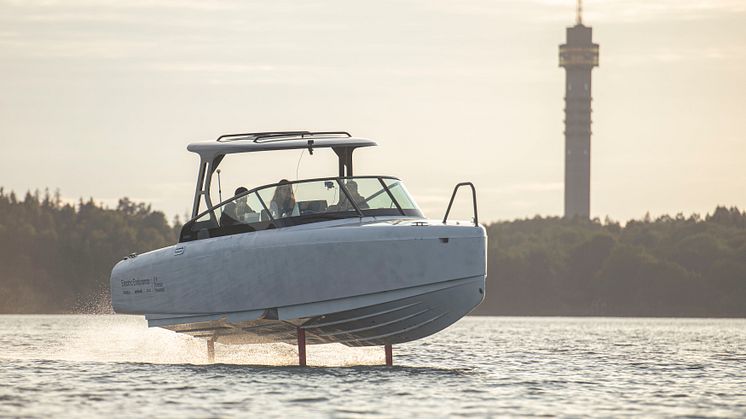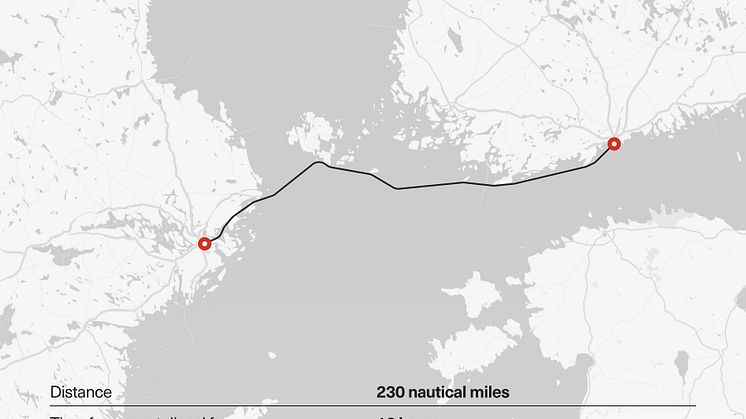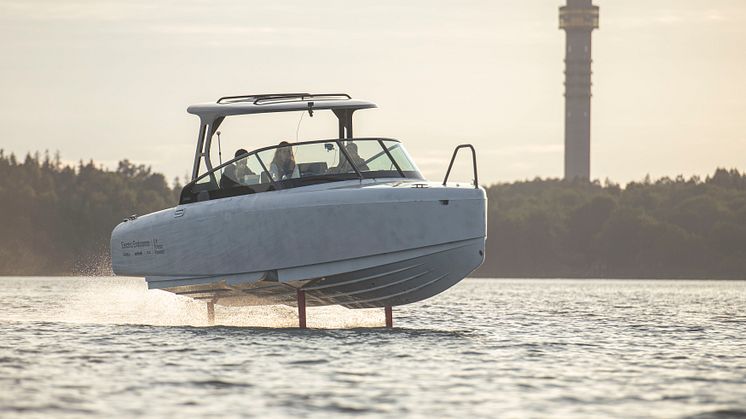
Press release -
Electric Boat Shatters World Record, Covers 483 miles (777 km) in a Day
Imagine traveling by electric boat from London to Amsterdam and back within 24 hours? During a recent endurance challenge, the electric, hydrofoiling Candela C-8 covered a distance equivalent to that journey, setting a new world record for the longest distance driven by an electric boat in a day.
Swedish electric boat manufacturer Candela's latest version of its C-8 foiling craft covered a remarkable 420 nautical miles – equivalent to 777 kilometers or 483 miles – within 24 hours in the Stockholm archipelago. The prior claimed record was 79 nautical miles achieved in 20 hours.
"This feat shows that fast, electric waterborne transport over long distances is viable today, not a distant future” says Gustav Hasselskog, Candela’s CEO and founder, who piloted the C-8 during the record attempt.
While conventional planing electric boats face challenges due to water friction, leading to shorter ranges, the C-8 uses hydrofoil technology—wings slung under the hull—to reduce energy usage by 80%. This results in a range that's 2 to 3 times longer than that of traditional electric boats. Moreover, the C-8 can be DC-charged thanks to Candela’s partnership with electric car company Polestar, which supplies both batteries and charging for the C-8. Together, this makes extended journeys using battery power feasible for the first time.
The record run was enabled by Northvolt's mobile battery storage system Voltpack, which was used to DC charge the C-8 during the record run. On the dock stood a 281 kWh Voltpack system, and a Plug DC charger, which enabled rapid charging of the C-8's battery. The average speed during the 24-hour run was 17 knots, even when accounting for charging breaks. The route comprised a loop between Stockholm and the island of Tynningö, with DC charging after each lap.
The record distance run offered several insights about what can be achieved with Candela’s electric foiling vessels and a network of DC charging stations:
- The distance traveled in 24 hours equates to driving from Amsterdam to London and back - or between Trondheim and Stavanger.
- The C-8 could have shuttled across the English Channel between Dover and Calais 20 times in 24 hours.
- Traveling at an average speed of 17 knots including charging breaks, the C-8 could journey from Stockholm to Finland in 13 hours, outpacing the Finland ferry by 3 hours.
- The C-8, running at full speed, 27 knots, most of the time, consumed 685 kWh during its journey, costing about €110-120 in electricity. In contrast, a conventional petrol-powered boat would consume roughly 750 liters of gasoline, costing approximately €1400.
Candela conducted the record run in collaboration with battery maker Northvolt and charging station supplier Plug, to showcase how future DC charging networks for boats could look like in archipelagos and remote coastal areas. Instead of making heavy investments in upgrading the local grid, islands can deploy battery systems like Voltpack to ensure that there's enough power available for fast charging.
"With a relatively modest investment, charging stations could be built to fully electrify marine transport in the Stockholm archipelago. For a few hundred million euros, a charging network covering Europe's coastal passenger transports would become a reality,” states Gustav Hasselskog.
This fall, Candela introduces its new passenger vessel, the 30-person Candela P-12 Shuttle. This vessel can operate most of the world’s coastal waterways while offering a sustainable and much more cost-effective alternative to today's fossil-fueled waterborne traffic, which accounts for 3% of global GHG emissions.
”We don't have to wait for tomorrow. We have the technology to shift towards sustainable marine transport now”, concludes Gustav Hasselskog.
Electric Endurance Challenge
The circuit consisted of a 20 nautical mile loop between Frihamnen and the island of Tynningö.
During the 24 hours, the C-8 charged for a total of 313 minutes and received a total of 615kWh of electrical energy. Each charge took about 18 minutes, and the battery was charged from about 13% to 66% State of Charge (SOC). The Candela C-8 had an average charging speed of about 118kW. The vessel maintained an average speed of slightly over 17 knots during the race, including charging breaks. While driving, the target speed was 27 knots.
About Candela
Candela is a Swedish boat and ship manufacturer that develops sustainable, high-performance electric boats. Through cutting-edge hydrofoil technology, Candela has pioneered electric boats with impressive range and speed. For additional details, please visit our website at candela.com.
For press inquiries: Mikael Mahlberg Mikael.mahlberg@candela.com +46 765 37 66 78
Related links
Topics
Stockholm-based Candela Technology AB is the world leader in hydrofoiling electric vessels. The company was founded in 2014 by engineer and business leader Gustav Hasselskog with the mission to accelerate the world's transition to fossil fuel-free lakes and oceans by developing electric vessels that outperform those powered by fossil fuels.
Candela's watercraft have wings (hydrofoils) that lift the hull above the water and reduce friction, using 80% less energy than conventional ships at high speed. This technology allows for long-range water travel solely on battery power, a first in the industry. Candela's hydrofoils also enable operators to transition to sustainable fleets by providing up to 50% lower operational costs.
At the heart of Candela's hydrofoil tech stack is the Flight controller, which automatically stabilizes the vessel during flight by regulating the foils, using sensors that gauge wave height and wind speed, among other factors. Even in rough weather, passengers experience 90% less g-forces than they would on a traditional boat. All Candela vessels are fully connected and receive over-the-air updates.
After five years of research and development, Candela began producing the world's first electric hydrofoil leisure boat in 2019, the Candela C-7 open "roadster of the seas". This was followed in 2021 by the high-volume market Candela C-8, which will be delivered to the first customers in spring 2023. Over 150 C-8 units have been sold to date, and the vessel has been lauded as a "game changer" by Motorboat and Yachting magazine, winning numerous awards including the 2022 European Powerboat of the Year award for its superior seakeeping, long range, and high speed.
In 2023, Candela is launching its first commercial vessel, the Candela P-12 Shuttle ferry. It is poised to set multiple world records for being the fastest and longest-range electric ship ever built, with a top speed of 30 knots and a range of up to 60 nautical miles. It will also be the most energy-efficient fast ship ever made in its size class. Substantial operational cost savings are expected. The first unit is water launched during summer 2023.
Candela is a technology company with headquarters in Stockholm, Sweden, employing over 200 engineers, technicians, and production staff. The company develops the entire tech stack, from the C-POD motor to the control system and carbon fiber hulls, in-house. Candela's two wholly-owned factories in Stockholm, Sweden, produce the Candela C-8 and P-12 vessels. The company also has leisure boat resellers in 12 countries and wholly-owned sales offices in San Francisco, USA, and Cannes, France.


